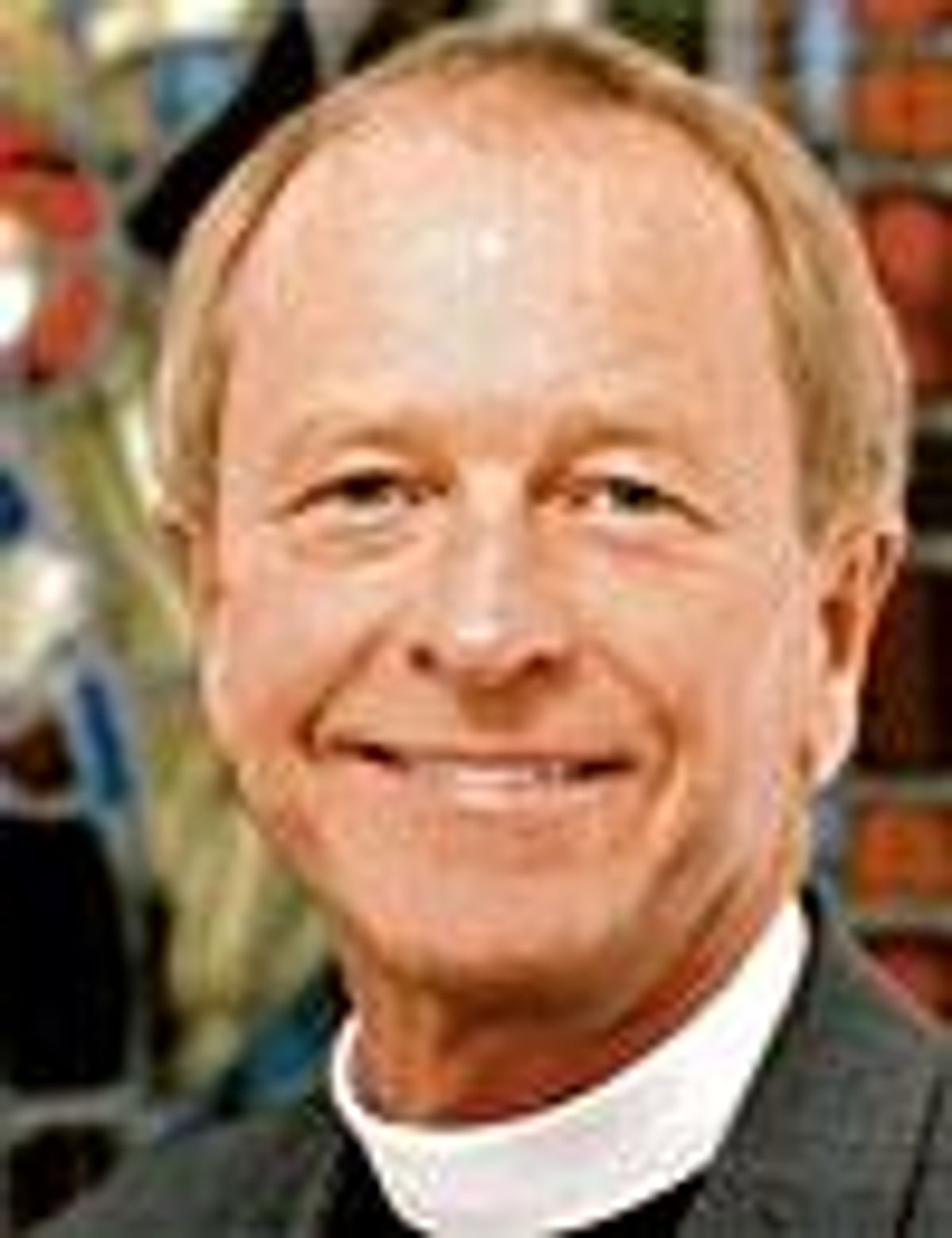Two bishops at
the heart of the U.S. Episcopal Church's divisions over
sexuality and scripture will not be invited to next year's
global gathering of Anglican prelates, the archbishop
of Canterbury's office in London announced
Tuesday.
Bishops V. Gene
Robinson of New Hampshire and Martyn Minns of the
breakaway Convocation of Anglicans in North
America were not among more than 850 bishops
invited, said Canon Kenneth Kearon, secretary-general
of the Anglican Communion.
Robinson was the
first Anglican bishop to be openly living in a same-sex
relationship, and his election in 2003 drove a huge rift
between the liberal and conservative wings of the
church.
Minns was
consecrated bishop on May 5 in Woodbridge, Va., by Nigerian
archbishop Peter Akinola, the most outspoken of the numerous
Anglican critics of Robinson's elevation.
Robinson may be
invited to attend the Lambeth Conference as a guest, but
Archbishop of Canterbury Rowan Williams is not contemplating
inviting Minns, Kearon said.
''The question of
Gene Robinson...I think has exercised the archbishop of
Canterbury's mind for quite some time,'' he said, adding
that there was no doubt that Robinson was duly
elected and consecrated a bishop according to the
rules of the Episcopal Church.
''However, for
the archbishop to simply give full recognition at this
conference would be to ignore the very substantial and very
widespread objections in many parts of the communion
to his consecration and to his ministry,'' Kearon
said.
Robinson said
Williams's decision was a ''great disappointment.''
''At a time when
the Anglican Communion is calling for a 'listening
process' on the issue of homosexuality, how does it make
sense to exclude gay and lesbian people from the
discussion?'' Robinson said in a statement released by
his office. ''This is not about Gene Robinson nor the
diocese of New Hampshire,'' he added. ''It is about the
American church. It is for the Episcopal Church to
respond to this divide-and-conquer challenge to our
polity, and in due time, I assume we will do so.''
The conference,
generally held every 10 years and covering all sorts of
topics, will take place at the University of Kent in
England, July 16-August 4, 2008.
Katharine
Jefferts Schori, presiding bishop of the U.S. Episcopal
Church, had also been informed of the invitation
decision, Kearon said.
He said Williams
had expressed his displeasure about Akinola's intention
to consecrate Minns as a bishop. ''There is no question that
he [Minns] is a bishop, but his consecration is not
regular,'' Kearon said.
''I am not aware
of any intention to invite him as a guest. It is a very
different situation,'' he added.
Kearon said
Williams was deliberating on whether to invite one or two
other bishops, but he declined to give any details.
The divisions
wracking the 77 million-member Anglican Communion
were prominent at the last Lambeth Conference in 1998.
By a large
majority, bishops at that conference adopted a resolution
''rejecting homosexual practice as incompatible with
scripture'' and declared their opposition to the
''legitimizing or blessing of same-sex unions nor
ordaining those involved in same-gender unions.''
Nonetheless,
Episcopalians in New Hampshire elected Robinson as their
bishop, a choice confirmed by the Episcopal Church's
governing General Convention.
A year earlier,
the diocese of New Westminster in western Canada alarmed
doctrinal conservatives by authorizing services of blessing
for same-sex partnerships.
In his invitation
letters, which were sent by e-mail, Williams said: ''At
a time when our common identity seems less clear that it
once did, the temptation is to move further away from
each other into those circles where we only related to
those who completely agree with us.
''But the depth
and seriousness of the issues that face us require us to
discuss as fully and freely as we can, and no other forum
offers the same opportunities for all to hear and
consider, in the context of a common waiting on the
Holy Spirit.
''I have said,
and repeat here, that coming to the conference does not
commit you to accepting every position held by other bishops
as equally legitimate or true. But I hope it does
commit us all to striving together for a more
effective and coherent worldwide body, working for God's
glory and Christ's Kingdom.'' (Robert Barr, AP)



















































































